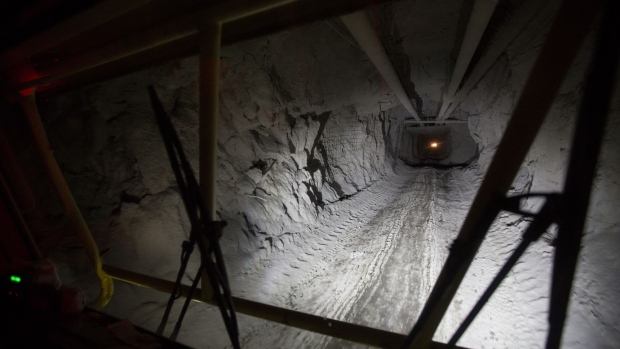Sep 16, 2021
Guinea’s Junta Pledges Continuity on Mining Policies After Coup
, Bloomberg News

(Bloomberg) --
Guinea’s military rulers provided “strong reassurance” to mining companies at a meeting Thursday after last week’s coup, said an official at the nation’s biggest bauxite producer.
The new leadership “reinforced the message from their first speech reassuring the mining sector about its importance and that miners will be allowed to continue their activities,” Frederic Bouzigues, general manager of Societe miniere de Boke, said by phone from the capital, Conakry.
“Existing regulations, contracts and investments will be respected,” said Bouzigues, who was among representatives of mining companies that met with the junta. “In return, they expect miners to respect their engagements with regards to contracts and continue local and environmental regulations and to continue local development work.”
Colonel Mamady Doumbouya, the head of an elite army unit, seized power in Guinea on Sept. 5 after arresting President Alpha Conde. The coup exacerbated concerns about supply constraints that have pushed aluminum prices to the highest level in 13 years.
Guinea is the largest exporter of bauxite, a raw material used to make aluminum. The West African country generates most of its revenue from mining exports, which have helped it to maintain annual economic growth rates of more than 6% over the past five years.
The junta lifted a curfew in mining areas shortly after the coup, urged companies to keep operating and kept the nation’s ports open.
Key investors in Guinea, which supplies about 20% of the world’s bauxite, include United Co. Rusal of Russia and Aluminium Corp. of China.
The junta’s meeting with miners took place as regional heads of state held a second emergency meeting Thursday to discuss the crisis in Guinea. The regional bloc has called for the immediate release of Conde, who is still being detained by the junta, and threatened sanctions to press for a prompt return to civilian rule.
The coup in Guinea follows a second military takeover in neighboring Mali in May and an unconstitutional succession in Chad after the death of President Idriss Deby in April.
©2021 Bloomberg L.P.


